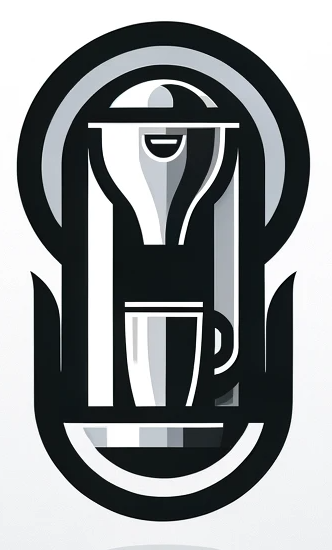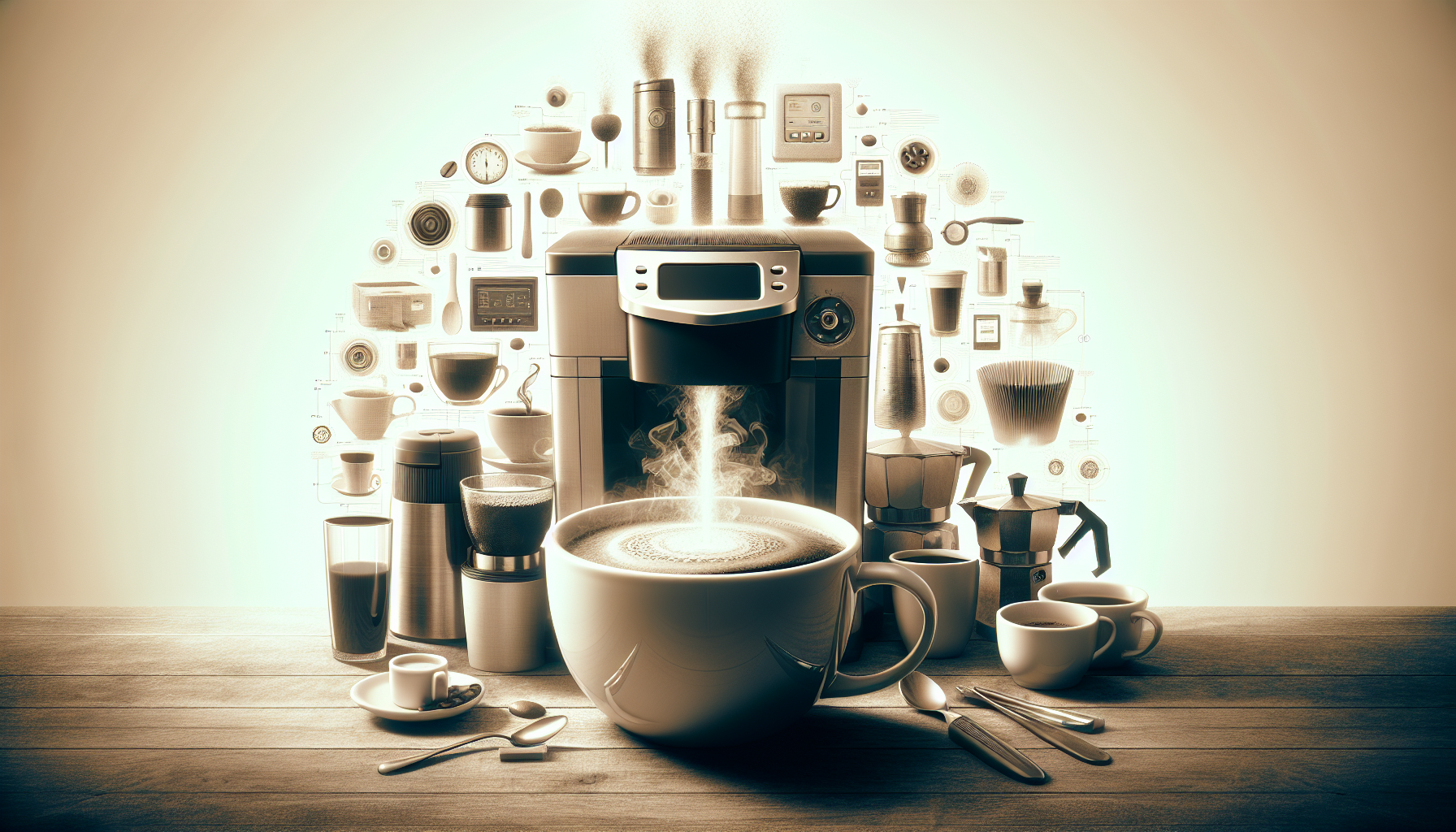Are you a coffee lover who is torn between the convenience of a Keurig machine and the cost-saving benefits of making coffee at home? In this article, we will explore the age-old question: is it cheaper to make coffee or Keurig? By examining the factors that contribute to the cost of each method and considering the long-term expenses, we hope to shed some light on which option is more budget-friendly for the coffee enthusiasts out there. Get ready to uncover the truth and make an informed decision about your caffeine fix!
CHECK OUT SINGLE SERVE BREWERS ON AMAZON
Cost of Keurig Machine
Initial cost
The initial cost of a Keurig machine can vary depending on the model and features you choose. Generally, the prices range from $50 to $200. However, it’s important to note that you may also need to purchase additional accessories such as a pod dispenser or filters, which can add to the overall cost.
Long-term cost
While the initial cost of a Keurig machine may seem high, the long-term cost can be relatively affordable. The main ongoing expense for Keurig users is the cost of coffee pods. On average, a single pod can range from $0.50 to $1.00 per cup. If you drink multiple cups a day, this can add up over time. However, there are ways to minimize this cost, such as buying in bulk or opting for reusable pods.
CHECK OUT SINGLE SERVE BREWERS ON AMAZON
Cost of Coffee Maker
Initial cost
When it comes to traditional coffee makers, the initial cost can also vary depending on the brand and features. Drip coffee makers typically range from $20 to $150, while specialty options like espresso machines can cost anywhere from $100 to several thousand dollars.
Long-term cost
Unlike Keurig machines, traditional coffee makers require ground coffee or coffee beans, which tend to be more affordable. The cost per cup of coffee made with ground coffee can be as low as $0.10 to $0.30, depending on the quality and brand you choose. This makes traditional coffee makers more cost-effective in the long run, especially if you are a heavy coffee drinker.
Coffee Pods vs Ground Coffee
Cost per cup – Coffee pods
One of the main advantages of using a Keurig machine is the convenience of coffee pods. However, this convenience comes at a higher cost per cup. Coffee pods typically range from $0.50 to $1.00 per pod, making them more expensive than ground coffee.
Cost per cup – Ground coffee
Ground coffee, on the other hand, is more affordable and offers a lower cost per cup. By purchasing coffee beans and grinding them yourself, you can save money and have more control over the brewing process. On average, the cost per cup of ground coffee can be as low as $0.10 to $0.30.
Versatility – Coffee pods
Coffee pods provide a wide variety of flavors and blends, allowing you to easily switch between different types of coffee without the need for separate bags of ground coffee. This versatility is a major benefit for those who enjoy trying new flavors or want a quick and convenient option.
Versatility – Ground coffee
While ground coffee may not offer the same variety as coffee pods, it still provides flexibility in terms of brewing methods. With ground coffee, you can use different brewing techniques such as pour-over, French press, or cold brew, allowing you to customize your coffee experience to your liking.
Environmental Impact
It’s important to consider the environmental impact of coffee pods. While they offer convenience, the single-use plastic or aluminum pods can contribute to waste. On the other hand, using ground coffee can be more eco-friendly, especially if you opt for brands that prioritize sustainable and ethical practices.
Additional Costs
Pod dispenser
If you choose to use coffee pods with your Keurig machine, you may need to invest in a pod dispenser. This accessory can help organize and store your pods, but it can also add to the overall cost.
Filters and accessories
Another additional cost for both Keurig machines and traditional coffee makers is the need for filters and additional accessories. These can include water filters, reusable pods, or even a milk frother for specialty drinks. While not essential, these extras can enhance your coffee experience but should be considered when calculating the overall cost.
Maintenance and repair
Both Keurig machines and traditional coffee makers may require occasional maintenance or repair. This can include cleaning supplies, replacement parts, or even professional servicing. These costs should be taken into account when evaluating the long-term affordability of your chosen coffee-making method.
Coffee Quality
Taste comparison – Coffee pods
Coffee pods often provide consistent and reliable flavors, ensuring that each cup tastes the same. However, some coffee enthusiasts argue that the brewing process of coffee pods can lead to a slightly diluted or less robust taste compared to other brewing methods.
Taste comparison – Ground coffee
Ground coffee, when brewed properly, can offer a rich and flavorful cup of coffee. The brewing process allows for more control, resulting in a potentially stronger and more aromatic taste. However, the quality and freshness of the beans, as well as the brewing technique, play a significant role in the final taste.
Variety and customization
When it comes to variety and customization, both coffee pods and ground coffee offer options. Coffee pods are available in various flavors and blends, making it easy to try different types without committing to a whole bag of coffee. On the other hand, ground coffee allows for more versatility in terms of brewing methods and the ability to mix different types of beans for a truly customized taste.
Time and Convenience
Brewing time
Keurig machines are known for their speed and convenience, allowing you to brew a cup of coffee in just a few minutes. The pre-portioned coffee pods eliminate the need for measurement and grinding, making it a quick and hassle-free process. Traditional coffee makers, while slower, still provide a relatively short brewing time, especially when compared to methods like pourover or French press.
Ease of use
Both Keurig machines and traditional coffee makers are designed to be user-friendly. Keurig machines typically feature one-touch brewing and automatic controls, making them incredibly easy to operate. Traditional coffee makers require a bit more manual effort, including measuring water and coffee grounds, but are still relatively simple to use.
Cleaning and maintenance
In terms of cleaning and maintenance, Keurig machines generally require less effort. The brewing system is self-contained, and many models have automated cleaning cycles. On the other hand, traditional coffee makers may involve more cleaning and maintenance, including regular descaling and cleaning the coffee pot. However, with proper care, both types of machines can maintain their performance and lifespan.
Brewing Capacity
Single cup brewing
One of the key features of Keurig machines is their ability to brew a single cup of coffee at a time. This is ideal for individuals or households where each person prefers different types of coffee or when you only need a small amount. Traditional coffee makers can also brew a single cup if you use the appropriate measuring ratios, but they are generally designed for larger capacities.
Multiple cups brewing
When it comes to brewing multiple cups, traditional coffee makers have the advantage. With larger water reservoirs and multiple brewing options, they can easily accommodate multiple servings of coffee. Keurig machines may require refilling the water reservoir for each cup, making them less efficient for brewing larger quantities.
Longevity
Lifespan of Keurig machine
The lifespan of a Keurig machine depends on various factors, including usage, maintenance, and the specific model. On average, a well-maintained Keurig machine can last anywhere from 3 to 5 years. However, some users have reported their machines lasting longer with regular cleaning and proper care.
Lifespan of coffee maker
Traditional coffee makers can also have a lifespan of 3 to 5 years with proper maintenance. However, the lifespan may vary depending on the build quality and brand. Specialty coffee makers or higher-end espresso machines may have a longer lifespan but may require more extensive maintenance and occasional repairs.
Personal Preference
Brewing ritual
For some coffee enthusiasts, the brewing ritual is an essential part of their coffee experience. Traditional coffee makers allow for more hands-on involvement, including grinding beans, measuring water and coffee, and manually controlling the brewing process. This ritual can provide a sense of satisfaction and engagement that some Keurig users may miss.
Coffee taste preference
Ultimately, personal preference plays a significant role in determining whether a Keurig machine or a traditional coffee maker is suitable. Keurig machines offer convenience, consistency, and a wide variety of flavors, which can be appealing to those who prioritize convenience and exploration. Traditional coffee makers, on the other hand, provide greater control over the brewing process, allowing for a potentially more customized and flavorful cup of coffee.
Conclusion
When deciding between a Keurig machine and a traditional coffee maker, there are several factors to consider. The initial and long-term cost, coffee quality, time and convenience, brewing capacity, longevity, personal preference, and environmental impact all play a role in making a well-informed decision. Assessing your priorities and weighing the pros and cons of each option will help guide you toward the coffee-making method that best suits your needs and preferences. Ultimately, both Keurig machines and traditional coffee makers have their advantages and disadvantages, so choose accordingly and savor every cup of your favorite brew.

